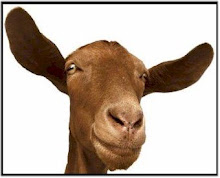 Francis Bacon was born on 22 January 1561 in London. He was the son of Sir Nicholas Bacon, keeper of the great seal for Elizabeth I. Bacon studied at Cambridge University and became an MP in 1584.
Francis Bacon was born on 22 January 1561 in London. He was the son of Sir Nicholas Bacon, keeper of the great seal for Elizabeth I. Bacon studied at Cambridge University and became an MP in 1584.However, he was unpopular with Elizabeth, and it was only on the accession of James I in 1603 that Bacon's career began to prosper. Knighted that year, he was appointed to a succession of posts culminating, like his father, with keeper of the great seal.
Bacon's real interests lay in science. Much of the science of the period was based on the work of the ancient Greek philosopher Aristotle. While many Aristotelian ideas, such as the position of the earth at the centre of the universe, had been overturned, his methodology was still being used.
To this present day Bacon is well known for his treatises on empiricist natural philosophy and for his doctrine of the idols, which he put forward in his early writings, as well as for the idea of a modern research institute, which he described in Nova Atlantis.
Bacon's political ascent also continued: in 1618 he was appointed Lord Chancellor, the most powerful position in England, and in 1621 he was created viscount St Albans.
Basically, he was a bright bugger in a time when they didn’t have scientific calculators, Wikipedia or Google.
THE GOAT!
Francis Bacon was killed by a frozen chicken.
As the story goes, during the spring snow of 1626, the aging, ailing Bacon was returning by coach one night from London to his country estate when he suddenly decided to conduct a scientific experiment. He stopped the coach, bought a gutted chicken from a local villager, and stuffed the chicken with snow with his bare hands.
His aim was to show with this experiment that food could be preserved when frozen. This experiment proved fatal for Sir Francis. From the damp of the snow, he caught a chill from which he never recovered. A week later, he died.
In recounting the sad ending to this story, the historian Thomas Macaulay later declared, “The great apostle of experimental philosophy was destined to be its martyr.”




No comments:
Post a Comment